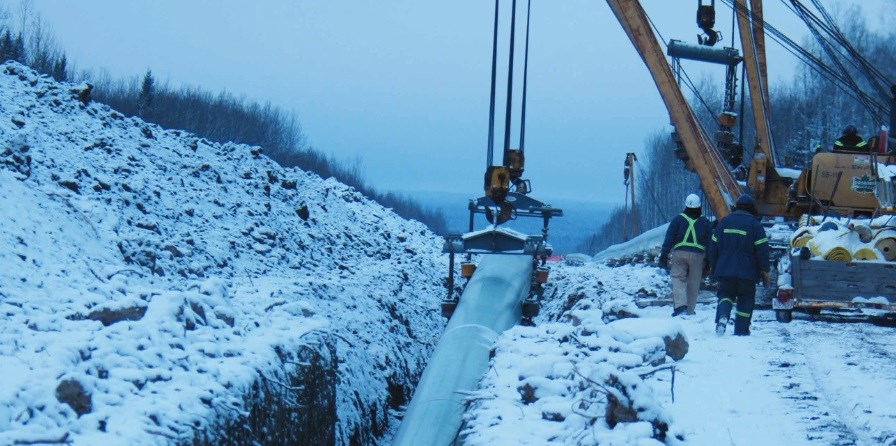The Coastal Gaslink pipeline is heading into its next phase in 2024, explained Heather Desarmia, public affairs advisor for TC Energy to the Peace River Regional District during a Dec. 8 board meeting.
The pipeline spans 670 kilometres, beginning in Dawson Creek and finishing in Kitimat, and will deliver gas to LNG Canada’s processing and export facility. Planning for the project began over ten years ago and TC Energy announced its completion this past October.
Next year's work will focus on clean-up, re-vegetation, and reclamation, with workforce accomodation structures to be demobilized by the end of December 2023. Erosion and sediment control and mitigation work will take place across 140 kilometres in the Peace Region this winter.
Gas testing has also begun at the Wilde Lake compressor station near Dawson Creek, which was brought online earlier this year, and gas has successfully been sent all the way to Kitimat. Additional permitting may be needed as work progresses, with another six compressor stations to be installed along the pipeline's route, and modifications to both Wilde Lake and the Kitimat site.
"Right now, Coastal Gaslink is technically in operations," said Desarmia, noting while active, no gas is currently being delivered to the LNG Canada station.
Desarmia says she’s proud of the milestones set by the project, over the past ten years of planning and five years of construction.
“This is the first time, and I need to emphasis Canadian natural gas, will reach coastal waters and touch global marketplace,” she said.
“We’ve actually estimated right now that our natural gas exports by Coastal GasLink could reduce the global CO2 emissions by 60 to 90 million tons,” added Desarmia, noting that amount is larger than B.C.’s total annual emissions.
To date, the project has created 25,700 jobs, generated $3.2 billion for BC’s GDP, and $331 million in tax revenue in addition to spending $3.95 billion with B.C. businesses and suppliers, according to TC Energy’s figures.
The pipeline was originally estimated to cost $6.2 billion, but TC Energy released a newer price tag of $14.5 billion this year. The processed gas is expected to be exported to Asian markets.
TC Energy provides 25 percent of the natural gas used by North America daily, and is responsible for 20 percent of oil produced in western Canada that’s sent to the U.S. and Gulf Coast, powering four million homes, explains Desarmia. The company is based in Calgary and owns over 90,000 kilometres of natural gas pipelines.
With files from The Canadian Press.



